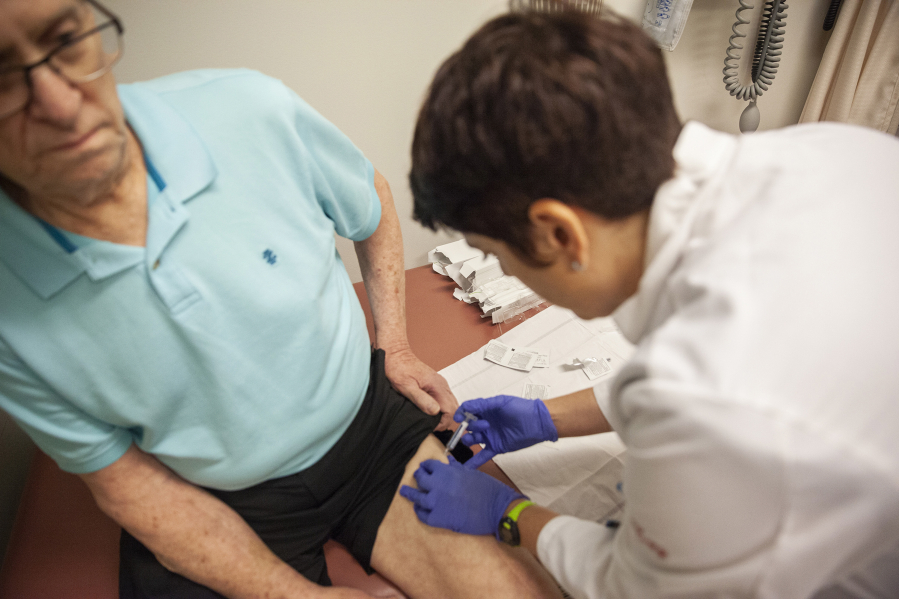Until this year, migraine sufferers had to make do with drugs originally developed for other medical conditions, such as high blood pressure or depression. Now, there are three new drugs that were developed just for preventing the horrible headaches.
Erenumab (Aimovig) was approved by the FDA in May. Fremanezumab (Ajovy) was approved in September and is now available. Galcanezumab (Emgality) was approved late in September and recently began arriving in doctors’ offices.
“They have a lot of promise and are potentially very important,” said Katherine Hamilton, a headache specialist at Penn Medicine. The drugs, which are injected under the skin, offer hope for patients who have not responded to other treatments, but Hamilton said that what is “potentially even more clinically relevant is they have a lower side-effect profile” than other medications commonly used for migraine. She added, though, that it remains to be seen how patients who take them for long periods will fare. As new drugs, their long-term impact is not yet known.
Stephen Silberstein, director of the Jefferson Headache Center, said about 800 of his migraine patients are on a list to start taking the drugs. He was involved in testing erenumab and helped design and run the trial for fremanezumab, so many of his patients were involved in the clinical trials and have already tried the medicines.



